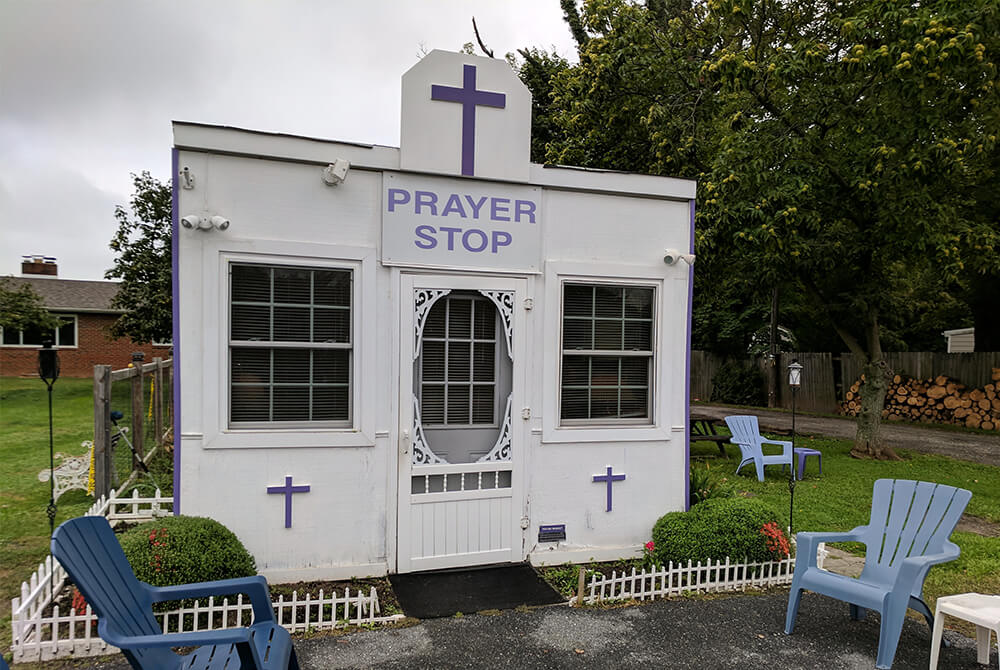Church: Does Bigger Mean Better?
There are pastors who dream of leading tiny rural ministries, but there are also those who aspire to helm mega-churches. In a time when membership is dropping, though, most preachers recognize the need to grow their congregations. The real question is whether big churches are better. There are good points on both sides, and the answer could differ between ministries.
Regardless of whether your parishioners are more comfortable in a small or large church setting, the one thing that remains essential is growth. Your ministry can continue to grow without turning into a mega-church as long as you engage your followers. Make time later to review how the DonorWerx Framework can accomplish this, but first, read on to learn if bigger churches are better.
Are Bigger Churches Better?
Before diving into whether a bigger church is better for your congregational needs, it’s important to first dispel the idea that there’s a right or wrong answer. When comparing a megachurch in California to a tiny rural chapel in Georgia, for instance, it’s impossible to say which congregation is better. God measures righteousness in deeds, not attendance or square footage.
This becomes apparent when looking at recent trends. Studies show that only about one-third of Americans trust church leadership. This is a major problem for ministries of all sizes. Even as many pastors aspire to have massive gatherings in the sanctuary, a significant portion of the public view mega-churches as toxic to religion.
By contrast, there are those who think small churches are likely to be unwelcoming to outsiders or simply don’t have enough resources to help their community. Assumptions based on size are unfair in all instances. The truth is that the smallest ministry on earth could be better than the largest, but the contrary could also be true. It’s all subjective, so instead, let’s consider concrete benefits.
7 Reasons Bigger Churches Are Better
Some pastors strive to lead a large church, and it’s often because they equate this to success. We’ve discussed why this isn’t always the case, but there are several undeniable advantages that larger ministries have. The following are some of the most apparent, and thus why so many church leaders aspire to immense growth.
- More resources to help the community.
- Able to hire more help (e.g. youth pastors).
- Easier to find congregants with similar interests.
- Ability to bring in popular speakers from other ministries.
- Appeals to visitors who see size as a measure of church health.
- More resources for congregants (e.g. counseling).
- Access to a larger pool of potential church donors.
All these benefits can improve a pastor’s ability to spread the word of God. So for many, bigger churches are better. This type of success is a gift from above, so make the most of it. When God is generous with us, he expects that we’ll use our good fortune to serve in His name.
7 Reasons Smaller Churches Are Better
Some pastors prefer the simplicity that’s offered by running a small church. Larger ministries face many issues and concerns that tiny rural chapels never even dream of. This lends credence to the idea that bigger churches aren’t better, but some preachers still welcome that challenge. So obviously, this is just another subjective viewpoint.
There are very few who would argue, though, that the following are significant benefits of smaller churches:
- A deeper sense of community among members.
- New member integration is quick and absolute.
- Members view growth as a personal responsibility.
- Pastors can focus more on parishioners than administration.
- A higher sense of accountability between members.
- More chances at true discipleship.
- The pastor can get to know every member on a personal level.
These benefits appeal to many church leaders and congregants alike. Nearly 60 percent of American churches have fewer than 100 members, and one in five have fewer than 50. For many, this is by design. Unfortunately, there are others whose low numbers are a sign of struggle. The following section explains this reality and how to overcome it.
Being Big in Spirit
Both big and small churches can do great things, but the one area they both must succeed in is growth. It is a pastor’s responsibility to grow his flock. Unfortunately, statistics show this has become difficult. Nearly one-third of ministries saw reductions in membership exceeding five percent between 2016 and 2019. With fewer people going to church, this is sometimes unavoidable.
Fortunately, a ministry doesn’t need to have hundreds of parishioners to achieve success. It simply needs resources, and since 98 percent of church revenue comes from members, that’s where the focus on growth should rest. By increasing tithing and donations to your ministry, you’re able to improve outreach and increase the work your church can do in the community and beyond.
Are bigger churches better with engaging their parishioners? That’s a possibility, but larger ministries don’t have a monopoly on this. With the right donor engagement strategies, even small churches can keep their members excited and giving. As a pastor, it’s not your job to build a mega-church. Instead, it’s your job to achieve growth and do the most with the ministry you have.
Are Bigger Churches Better? That’s Up to You.
You can’t deny that large churches have many advantages you just don’t see with smaller congregations. By looking at the benefits of more modest ministries, though, it’s obvious that bigger isn’t always better. The measurement of success doesn’t always equate to the number of parishioners that walk through the door. If you’re effectively doing God’s work, that’s all that matters.
An effective ministry is one that continuously grows. The Lord calls on those chosen for service to grow their flocks. We created the DonorWerx Framework with this goal in mind. By keeping your congregation engaged and excited to give, you can ensure your parish has the resources to grow and further spread the word of God.
Schedule a Discovery Call with our giving experts today to learn how to increase giving by at least 10 percent in just six months.



